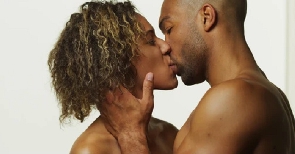The most important thing about kissing is, it is supposed to feel good and spark the feeling of craving for more.
For instance, there should be a different sensation associated with kissing your partner and giving your grandmother a peck on the cheek.
Ideally, a good kisser is one who is able to give and take simultaneously. Partners involved should be able to understand and follow each other’s rhythm. For instance, the switching of lips, tilting of the neck, lip teasing, sucking, and so on.
What is kissing
The act of kissing is defined as touching or pressing with the lips slightly pursed, and then parting them and emitting a smacking sound, in an expression of affection.
Now, here are some tips on how to be a good kisser, or what a good kiss entails
Leaning in
The first step to a kiss is the ‘leaning in’ stage. This begins with an eye contact with your partner while your faces are in close. When the eye contact is intense and does not break you know a kiss is going to happen.
Next, one or both partners will lean their face towards the other person’s face. Keep your eyes open and maintain eye contact while ‘Leaning in’. This will prevent you from missing or having a collision.
When your faces are almost close enough to touch, slowly tilt your head a little to the side. If you both go in for the kiss straight-on your noses will bump, with tilted heads your noses will just rub or not touch at all.
Be gentle
Start slow, be gentle, and stay in the moment. Think of a passionate kiss as massaging your partner's lips. Whatever you do with your hands should be calm and comfortable. For instance, if you bite, build to biting gradually.
Less tongue is better than a lot
There is no need to necessarily do anything with your tongue. You can use it to add emphasis to your kisses but most of the work should be done with your lips.
A delicate flick of the tongue, a gentle nibble on a lip, and light pressure are far better. After doing these things, see how your partner responds, and gauge your progress accordingly.
Think about how you would feel if your partner suddenly jammed their tongue in your mouth.
Practice good oral hygiene
Whenever you're going in for a kiss, endeavor to always keep a fresh breath. A good kisser always keeps their mouth clean by brushing, flossing, and using a mouthwash.
Also, after having a spicy meal, make sure to pop in a mint before giving someone a kiss.
Ladies should also skip the sticky lip gloss and keep their lips soft with smoother balms.
Rotate between the lips
While kissing, don’t just kiss your partner’s lower lip or upper lip the whole time.
Switch from top to bottom and try tilting your head a little more so you are kissing the corner area of their mouth.
As it gets intense, stop kissing briefly to slowly swipe your lips across theirs from corner to corner, diagonally.
Don’t be scared to give slight moans
Moderate but noticeable breathing and moaning can be good, as it conveys passion. But if done wrong can seem obnoxious or weird.
You can explore other parts of the body
Don't be afraid to explore other parts of the body such as the neck, ears, breast, or forehead.
You can make a trail of quick kisses up their jawbone from their lips, then to their ear then down the side of their neck.
Kissing someone you connect with, hits different
Kisses are the best way to connect with people emotionally and mentally. However, kissing someone you love or have a connection with, ignites ‘butterflies in your stomach’.
If you’re in love, Oxytocin, a calming and bonding hormone, will be racing through you.
You might suddenly have the urge to hug, kiss, or get more physical with your partner once your lips touch.
Scientific facts about kissing
Scientifically, kissing and other forms of physical intimacy activate the body’s feel-good chemicals called Oxytocin, also known as the “love hormone”. This hormone is said to be connected to trust and attachment.
Another hormone called ‘Dopamine’, released during kissing and other sexual intimacy acts, is connected to satisfaction and motivation.
Serotonin, is a different kind of hormone that stabilizes the mood.
Materials: Cambridge Dictionary, quora.com
EB/BB
LifeStyle of Monday, 22 May 2023
Source: www.ghanaweb.com

















